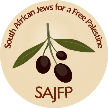Not Antisemitism but Justice: Why Jews support the academic boycott of Israel
On the 15th of March the University of Cape Town (UCT) Senate took a decision not to enter into any formal relationships with Israeli universities operating in occupied Palestinian territories. This is a momentous decision because it brings UCT in line with international law and makes UCT an ally in the struggle for human rights in Israel and Palestine. However we have already heard comments that this decision is anti-Semitic. As Jews who support calls for Palestinian liberation we reject this claim and seek to show how an academic boycott is an expression of Jewish ethics.
Antisemitism is a form of racism against Jews as Jews. A discriminatory process against Jewish people, businesses and places of worship etc. because we are Jewish. This is usually expressed through tropes such as the ‘greedy, money-driven Jew’ or the ‘Jewish conspiracy to control the world’. The call for a boycott of Israel utilizes none of these obnoxious stereotypes. Israel must be treated as a state like any other rather than be exempted from critique because it purports to be only a state of/for Jews.
The Palestinian Campaign for the Academic and Cultural Boycott of Israel (PACBI) guidelines are clear: the call is to isolate only those Israeli institutions that are complicit in maintaining the oppression of Palestinians. This is not a targeted attack against Jews or Jewish organisations but against Israeli state sponsored institutions that buttress a system of dispossession and denial of a wide range of human rights with respect to ‘non-Jews’. Further, this call for a boycott is based on well-grounded research that is open to scrutiny and that has been endorsed by academics, academic associations and universities worldwide. As such, we are enraged by what Israeli institutions do.
It should also be remembered that no boycott is everlasting. If it was antisemitic, one feature of it would be for it to be everlasting, because an antisemite would view us Jews as unchanging in our so-called barbarity. However this is not the case. The PACBI, and the broader movement for boycott, divestment and sanctions (BDS), is clear that this is a conditional strategy rather than an undying principle of Palestinian liberation. The boycott should be enforced until Israel complies with international law and the three basic demands of the Palestinian struggle that launched BDS in 2005: An end to the occupation of the West Bank and the siege on Gaza, full political and civil rights for Palestinians with Israeli citizenship and the right of return for Palestinian refugees.
Further, as Jews, we are convinced that the resolution that was championed by UCT’s Senate on the 15th of March to the effect that “UCT will not enter into any formal relationships with Israeli academic institutions operating in the occupied Palestinian territories as well as other Israeli academic institutions enabling gross human rights violations in the occupied Palestinian territories”, will, in the face of Israeli Zionist violations of basic Jewish ethics, assist us to live our Jewish moral and cultural identities with integrity and pride.
Jewish morality has developed from two sources. There is first the long history of Jewish resistance to oppressive regimes stretching from biblical times to the present. We very consciously carry the torch of resistance with those Jews who mobilised against Rome, Tsarist and Stalinist Russia, Nazi Germany, Apartheid South Africa, Pinochet’s Chile and now Trump’s America. We carry the torch of those Jews who fought against racism and oppression, whether directed against themselves or others by participating the Civil Rights Movement in the USA, in trade unions world over and, as importantly, in today’s Israel.
All these actions are also motivated by the call for Tikkun olam (literally ‘repairing the world’). Tikkun Olam is the prophetic call for a world free from oppression and exploitation. The Babylonian Talmud (Shabbat 54B), a central text in our religious library states: “Whoever is able to protest against the transgressions of the people of their community and does not do so is liable for their community. Whoever is able to protest against the transgressions of the entire world and does not do so is liable for the transgressions of the entire world.”
From these two traditions, secular and religious, we assert that it is our moral and ethical duty to protest against the State of Israel for human rights abuses against Palestinians. No one should sit by while unjust situations continue, especially when there are internationally recognised strategies towards ending the cycle of violence.
More and more Jews around the world are recognizing this and are now supporting the Palestinian call for boycotts. This includes the American ‘Jewish Voice for Peace’ with close to 100 000 members, the Israeli ‘Boycott from Within’ and Jewish organisations in Canada, Australia, Europe, Britain, Brazil, Argentina and, South Africa. Jewish and Jewish Israeli academics also support the academic boycott such as Rachel Giora, a Professor of Linguistics at Tel Aviv University and prominent Israeli feminist. She wrote a letter in 2009 to an academic boycott meeting of British academics stating that “in fact Israeli academia is no different from any other Israeli institutions, and in many cases it plays an active if not vital role in supporting Israeli apartheid practices against the Palestinians” and further that “the growing number of Israelis who are now supporting cultural and academic boycotts will rejoice in your achievements.”
Similarly, we await a ratification of this decision by the UCT Council and implore everyone, regardless of religion, to support the Palestinian call for a boycott, as the international community did for South African during Apartheid.
Mitchel Joffe Hunter is a member of South African Jews for a Free Palestine.

